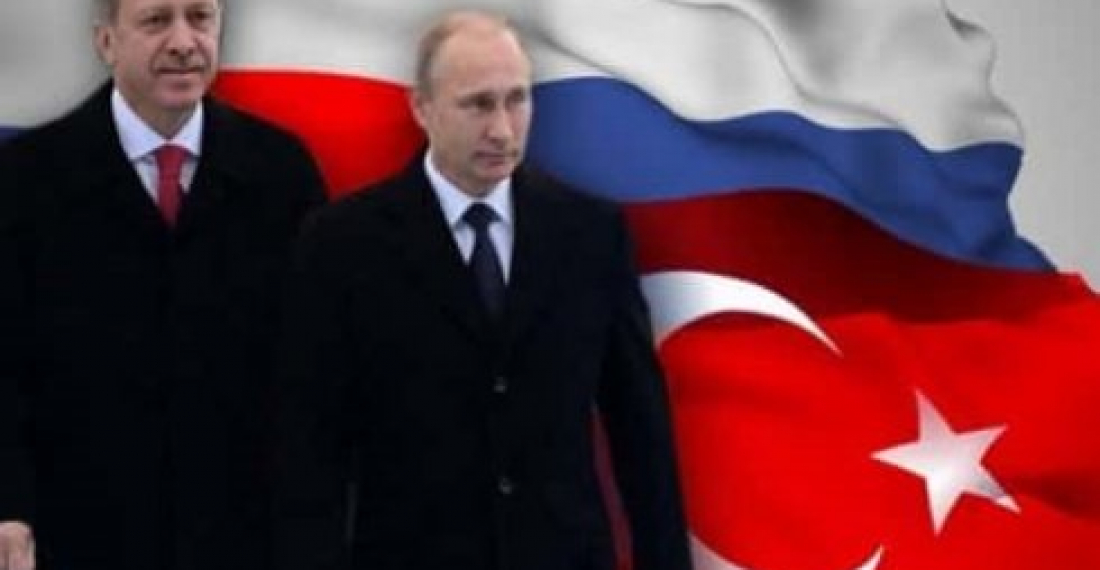Turkey's decision to buy Russia's S-400 missile defence system opens a new stage in relations between the two countries. Dr Benyamin Poghosyan discusses the implications for Armenia.
Over the last two years Russia-Turkey relations have gone through tremendous transformations. Immediately after the November 2015 incident, when Turkish military jets shot down a Russian war plane, Russia imposed tough economic sanctions on Turkey and publicly accused President Erdogan of supporting terrorism, including "Islamic State". The situation dramatically changed in summer 2016 when Erdogan apologized for the November 2015 incident. The August 2016 meeting between President Putin and Erdogan paved the way for a rapid normalization of bilateral relations.
The changing priorities of Turkey's strategy in the Syrian conflict - with more emphasise on preventing PKK linked Syrian Kurdish groups from establishing an autonomous Kurdish region adjacent to the Turkish - Syrian border, and gradually abandoning its insistence on an immediate departure of President Assad - create additional good conditions for further Russia-Turkey rapprochement. In late 2016 Russia and Turkey, in cooperation with Iran, launched the Astana negotiation platform which resulted in agreements on ceasefire arrangements and the establishment of de-escalation zones.
Another factor which supports a Russia-Turkey rapprochement is the deterioration in US - Turkey relations. The decision of the Trump administration to supply arms to the Kurdish YPG in Syria, a group which Turkey deems as a terrorist organization, as well as disagreements regarding the extradition to Turkey of Pennsylvania based cleric Fethullah Gulen, who, according to the Turkish authorities, was the key organizer of July 2016 failed military coup, further complicated US-Turkish relations, making Ankara more prone to deepen its cooperation with Moscow.
The growing Turkey-EU disagreements, and especially the unprecedented tensions with Germany resulting in a public verbal onslaught by Erdogan against Germany's political leadership is another factor pulling Turkey closer to Moscow. Influential Western think tanks and prominent experts are publicly casting doubts on the prospects of US - Turkey and EU - Turkey relations, emphasizing that the Euro -Atlantic community should rethink its strategy towards Turkey, and while recognising Turkey's significant role in regional geopolitics, should find a new modus operandi with Ankara.
The latest harbinger of transformation in Turkey's foreign and defense policy was Ankara's decision to buy Russian made S-400 air and missile defense systems. The upgrade of air and missile defense systems is among Turkey's top defense policy priorities. In September 2013 China Precision Machinery Import and Export Corporation (CPMIEC) was selected by Turkey as the winner of a tender for the implementation of a long-range air and missile defense system project. Chinese company was competing with Russian S - 400 and US patriot systems. This decision raised concerns in the US and NATO regarding the compatibility of Chinese systems with NATO ones, and eventually led to the cancellation of 3.4 billion USD deal in November 2015.
But while the deal with the Chinese company was perceived with concerns in the US and NATO, Turkey's decision to buy S - 400 systems from Russia made the West nervous. Since the beginning of the Ukraine Crisis in 2014, Russia-US and Russia-NATO relations have reached their lowest point since the end of the cold war. Russia is accused of clear violations of international laws and its own commitments to international agreements, and of redrawing the borders of Europe by force. In response, the US put forward the European Reassurance Initiative, and NATO in its Wales and Warsaw summits decided to significantly raise its military posture in Eastern Europe. Moscow blames NATO for anti -Russian rhetoric, and accuses the Alliance of bringing its military infrastructure closer to Russia's borders. In such tense environment, NATO member Turkey's decision to buy the S -400 systems from Moscow will only further exacerbate Turkey's relations with the West.
In this geopolitical juncture Russia and Turkey continue their cooperation/competition in the South Caucasus. Here Turkey positions itself as the strategic ally of Azerbaijan, whilst Russia is the strategic ally of Armenia and hosts a Russian military base in Gyumri. Armenia is a member of the Russia-led Collective Security Treaty Organization and Eurasian Economic Union. The Karabakh conflict, and the no-peace no-war situation between Armenia and Azerbaijan, put both Russia and Turkey in a delicate position, especially as Russia also has a growing partnership with Azerbaijan, supplying Baku with modern assault weaponry some of which was used during April 2016 escalation in Karabakh. Russia ‘s vague position during the April events, with no clear-cut support for Armenia, raised concerns in Yerevan regarding the efficacy of Russian security guarantees. In such an environment growing Russia -Turkey cooperation is perceived with some anxiety in Yerevan, with concerns about the possibility of an Azerbaijan - Turkey =-Russia trilateral cooperation format, and about Turkey's efforts to make changes in Russia's Karabakh policy.
However, it should be noted that the South Caucasus has more geostrategic importance for Russia than it has for Turkey. As part of the former Soviet Union the region is within Russia's self-declared zone of privileged interests, and Russia is putting extensive efforts to prevent the growth there of influence of any other actor. For Turkey, the zone of vital interest is the Middle East, particularly Syria and Iraq, significantly more now given the scheduled independence referendum in Iraq's Kurdish Region. Turkey is less likely to jeopardise its partnership with Russia in Syria and Iraq by challenging Russian interests in the South Caucasus. The region, and especially its alliance with Azerbaijan, can be a bargaining chip for Turkey in its negotiations with Russia. Russia itself will not tolerate any Turkish efforts to counter its activities in the region. Thus, at least in the short - term, Russian - Turkish rapprochement will not have significant impact on the balance of power between Armenia and Azerbaijan, or on Russia's Karabakh policy.
Dr Benyamin Poghosyan, is the Executive Director of the Political Science Association of Armenia, and a regular contributor to commonspace.eu






